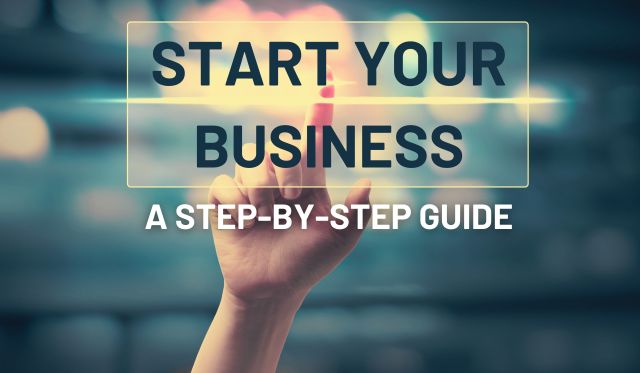Turning your dream of business ownership into reality is an exciting endeavor. But between the initial spark of an idea and opening your doors (or website) lies a crucial roadmap. This step-by-step guide will equip you with the knowledge you need to navigate the exciting journey of starting a business. 1. Find Your Niche and
Turning your dream of business ownership into reality is an exciting endeavor. But between the initial spark of an idea and opening your doors (or website) lies a crucial roadmap. This step-by-step guide will equip you with the knowledge you need to navigate the exciting journey of starting a business.
1. Find Your Niche and Conduct Market Research
Every successful business solves a problem or fulfills a need. Take time to refine your initial idea. What specific gap in the market are you addressing? Who is your target customer? Conducting thorough market research will help you understand your industry, competitors, and target audience. This might involve surveys, focus groups, and competitor analysis.
2. Craft a Compelling Business Plan
Your business plan serves as a roadmap for your venture. It should outline your mission statement, target market, competitive analysis, marketing strategy, financial projections, and funding requirements. A well-written business plan is not only essential for securing funding but also keeps you focused and organized.
3. Choose a Business Structure
There are various business structures, each with its own tax implications and legal framework. Common options include sole proprietorship, partnership, limited liability company (LLC), and corporation. Choosing the right structure depends on your business size, ownership goals, and liability preferences. Consulting with a lawyer or accountant can be helpful in making this decision.
4. Secure Funding
Most businesses require some level of funding to get off the ground. Funding options can include personal savings, loans, grants, or attracting investors. The amount of funding you need will depend on your business model and startup costs. Carefully consider your funding options and create a realistic financial plan.
5. Register Your Business and Obtain Permits
The legal and regulatory requirements for business registration vary depending on your location and industry. Research the necessary licenses and permits for your business type and location. You’ll also need to register your business with the government and obtain a tax ID number.
6. Develop Your Brand and Marketing Strategy
Creating a strong brand identity is essential for setting yourself apart from competitors. This includes developing a logo, brand messaging, and a cohesive visual identity. In tandem with branding, craft a marketing strategy to reach your target audience. Explore various marketing channels like social media, content marketing, or pay-per-click advertising.
7. Build Your Team (Optional)
Depending on the nature of your business, you may need to build a team to help you operate. Consider the skills and experience required and look for qualified individuals who complement your strengths.
8. Launch and Beyond!
With a solid foundation in place, you’re ready to launch your business. Celebrate your accomplishment, but remember, this is just the beginning. Continuously monitor your progress, adapt your strategies as needed, and focus on customer satisfaction to ensure your long-term success.
Remember, this is a general roadmap. Starting a business is an ongoing process filled with learning experiences. Embrace the challenges, celebrate the milestones, and enjoy the journey of building your dream!

















